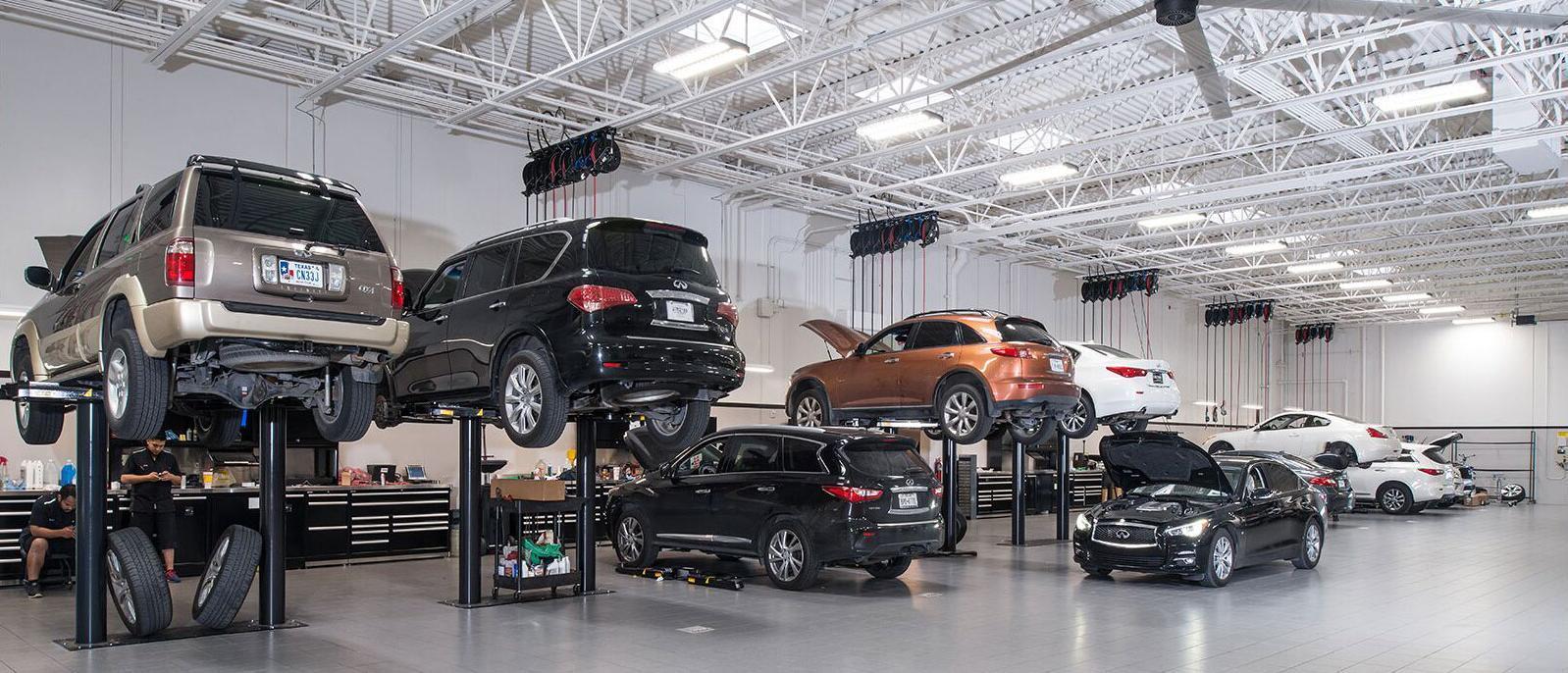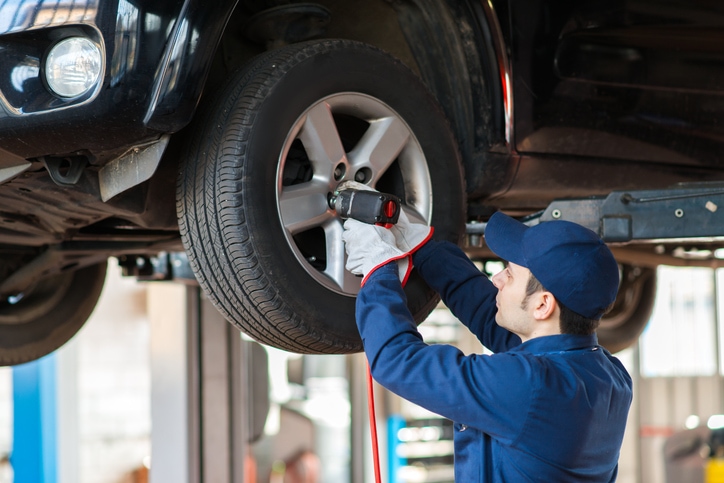All Categories
Featured
Your car's engine is a complex item of equipment that requires normal treatment to function successfully. By taking preventive actions, you can keep your engine running smoothly and avoid considerable expenses.
Engine oil lubricates interior components, lowering rubbing and wear. Change the oil and oil filter as suggested by your car's producer-- normally every 5,000 to 7,500 miles for modern lorries. Making use of the ideal kind of oil is just as important; consult your proprietor's manual to guarantee compatibility with your engine.
The engine's cooling system prevents getting too hot, which can create extreme damages. Check coolant levels regularly and replenish as necessary. Furthermore, follow the manufacturer's standards for flushing and changing coolant to keep the system working effectively.
![]()
Engines require a constant flow of clean air for burning. A clogged air filter can minimize fuel effectiveness and efficiency. When it shows up unclean or after reaching the gas mileage defined in your lorry's maintenance schedule., inspect the air filter occasionally and change it.
Unusual noises, minimized performance, or control panel warning lights usually indicate underlying engine issues. Address these indication promptly by consulting a certified mechanic to detect and solve troubles prior to they escalate.
Gas high quality straight affects engine health and wellness. Usage fuel with the proper octane ranking for your vehicle to avoid knocking and down payments in the burning chamber. Occasionally, adding a fuel injector cleaner can likewise assist preserve a clean fuel system.
Flicker plugs are vital for igniting the air-fuel combination in the engine. Damaged trigger plugs can bring about misfires, inadequate fuel economy, and increased exhausts. Follow your automobile's upkeep timetable to change them at the advised intervals.
![]()
Aggressive driving, such as rapid velocity and tough stopping, locations additional stress and anxiety on your engine. Preserve steady speeds and method smooth driving practices to minimize unnecessary deterioration.
![]()
Cracked or used tubes and belts can bring about overheating or other engine failings. Evaluate these parts on a regular basis and replace them if you notice any type of signs of wear, such as fraying or splits.
Dust and debris can hurt engine components over time. Ensure all seals are intact which the air consumption system is devoid of blockages. Normal checks can prevent pollutants from creating damages.
Even if your car seems to be running well, normal inspections by a trusted technician can uncover covert problems. A professional can determine wear-and-tear issues early, conserving you from costly fixings down the line.
By adhering to these preventative actions, you can stay clear of the stress and anxiety and expense of significant engine repair work. Normal attention and treatment not just keep your automobile trusted yet also enhance its resale worth and total performance.
- Maintain the Oil System
Engine oil lubricates interior components, lowering rubbing and wear. Change the oil and oil filter as suggested by your car's producer-- normally every 5,000 to 7,500 miles for modern lorries. Making use of the ideal kind of oil is just as important; consult your proprietor's manual to guarantee compatibility with your engine.
- Check and Refill Coolant Regularly
The engine's cooling system prevents getting too hot, which can create extreme damages. Check coolant levels regularly and replenish as necessary. Furthermore, follow the manufacturer's standards for flushing and changing coolant to keep the system working effectively.

- Screen Air Filters
Engines require a constant flow of clean air for burning. A clogged air filter can minimize fuel effectiveness and efficiency. When it shows up unclean or after reaching the gas mileage defined in your lorry's maintenance schedule., inspect the air filter occasionally and change it.
- Be Alert to Caution Indicators
Unusual noises, minimized performance, or control panel warning lights usually indicate underlying engine issues. Address these indication promptly by consulting a certified mechanic to detect and solve troubles prior to they escalate.
- Use High-Quality Gas
Gas high quality straight affects engine health and wellness. Usage fuel with the proper octane ranking for your vehicle to avoid knocking and down payments in the burning chamber. Occasionally, adding a fuel injector cleaner can likewise assist preserve a clean fuel system.
- Replace Spark Plugs promptly
Flicker plugs are vital for igniting the air-fuel combination in the engine. Damaged trigger plugs can bring about misfires, inadequate fuel economy, and increased exhausts. Follow your automobile's upkeep timetable to change them at the advised intervals.
- Avoid Harsh Driving Habits

Aggressive driving, such as rapid velocity and tough stopping, locations additional stress and anxiety on your engine. Preserve steady speeds and method smooth driving practices to minimize unnecessary deterioration.
- Check Hoses and belts

Cracked or used tubes and belts can bring about overheating or other engine failings. Evaluate these parts on a regular basis and replace them if you notice any type of signs of wear, such as fraying or splits.
- Prevent Impurities from Going Into the Engine
Dust and debris can hurt engine components over time. Ensure all seals are intact which the air consumption system is devoid of blockages. Normal checks can prevent pollutants from creating damages.
- Set Up Routine Assessments
Even if your car seems to be running well, normal inspections by a trusted technician can uncover covert problems. A professional can determine wear-and-tear issues early, conserving you from costly fixings down the line.
By adhering to these preventative actions, you can stay clear of the stress and anxiety and expense of significant engine repair work. Normal attention and treatment not just keep your automobile trusted yet also enhance its resale worth and total performance.
Latest Posts
Discover Exclusive Auto Repair Specials in Chicago at Montclare Auto Repair
Published May 27, 25
1 min read
Uncover Reduce Expenses on Car Maintenance with Montclare Auto Repair’s Limited-Time Deals
Published May 27, 25
1 min read
How Regular Vehicle Maintenance at Montclare Auto Repair Saves You Money
Published May 26, 25
1 min read
More
Latest Posts
Discover Exclusive Auto Repair Specials in Chicago at Montclare Auto Repair
Published May 27, 25
1 min read
Uncover Reduce Expenses on Car Maintenance with Montclare Auto Repair’s Limited-Time Deals
Published May 27, 25
1 min read
How Regular Vehicle Maintenance at Montclare Auto Repair Saves You Money
Published May 26, 25
1 min read